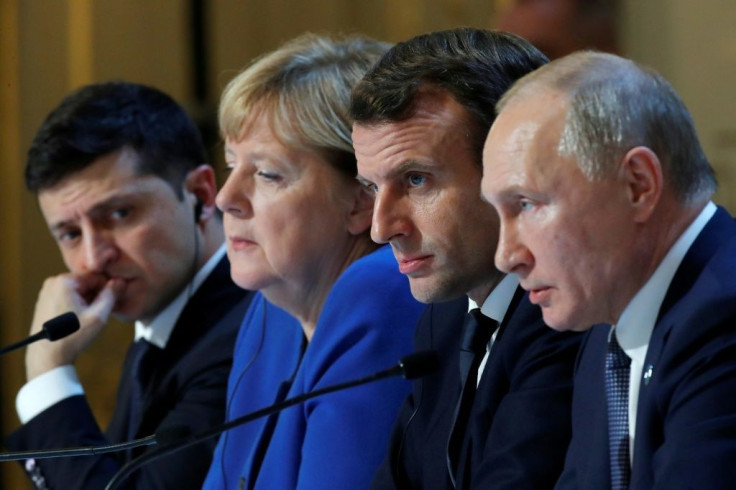'New Phase' In Talks On Ukraine As Russia Changes Negotiator: France

Russia's appointment of a new pointman for Ukraine will likely push back a second summit on ending the nearly six-year conflict but could herald a new phase in the talks, a French presidential official said Wednesday.
Ukrainian President Volodymyr Zelensky held his first face-to-face meeting with Russian counterpart Vladimir Putin at a December 9 summit in Paris hosted by French President Emmanuel Macron and attended by German Chancellor Angela Merkel.
The summit made limited progress towards ending a conflict that has left thousands dead since 2014 and is Europe's only active war.
The leaders did, however, agree to meet again within four months.
But the Kremlin on Tuesday announced that Putin had appointed close ally Dmitry Kozak as his pointman on Ukraine, replacing the secretive strategist Vladislav Surkov.
Some analysts see the move a potentially positive development for the peace talks. Kozak is considered a less divisive and more pragmatic figure than Surkov, who cultivated close ties with Ukrainian separatists.
"These changes are going to stretch out the calendar a bit," a French presidential official, who asked not to be named, told reporters.
"The teams are changing, this means that on all sides we are reorganising the negotiating teams in expectation of a new phase of negotiation," the official added.
In Kiev, Zelensky has dismissed his chief of staff Andriy Bogdan and replaced him with Andriy Yermak, a close ally who has led on Russia and other international negotiations.
Yermak insisted Tuesday that he would continue to handle foreign policy. A source in the Ukrainian presidency told AFP that he remains the main negotiator with Russia.
"In terms of the calendar I cannot say when this summit will take place", said the French official. "But it is certain that we see on both sides a desire to discuss and this is how we interpret this reorganisation."
More than 13,000 people have been killed and at least 1.5 million have fled their homes since Russia-backed militias in eastern Ukraine launched a bid for independence in 2014 -- kicking off a conflict that deepened Moscow's estrangement from the West.
The separatists seized control of parts of the Donetsk and Lugansk regions shortly after Russia's annexation of the Ukrainian peninsula of Crimea.
© Copyright AFP {{Year}}. All rights reserved.





















